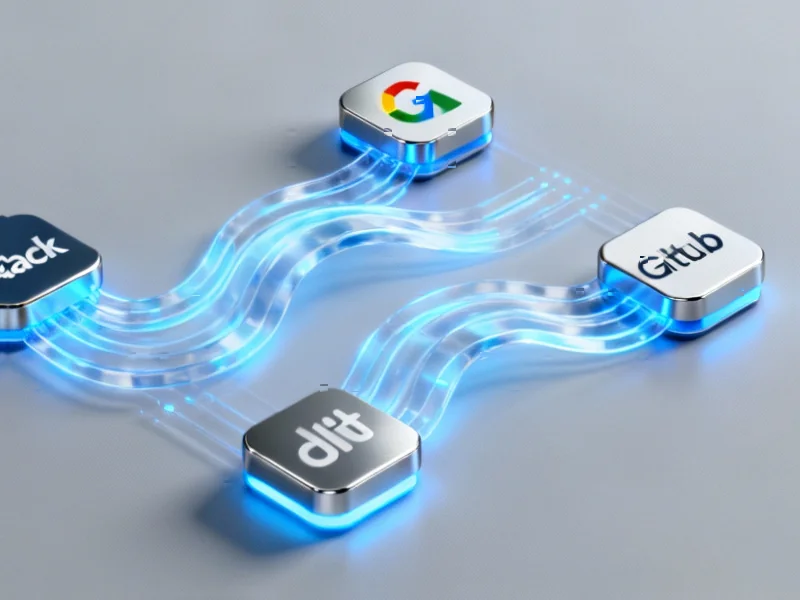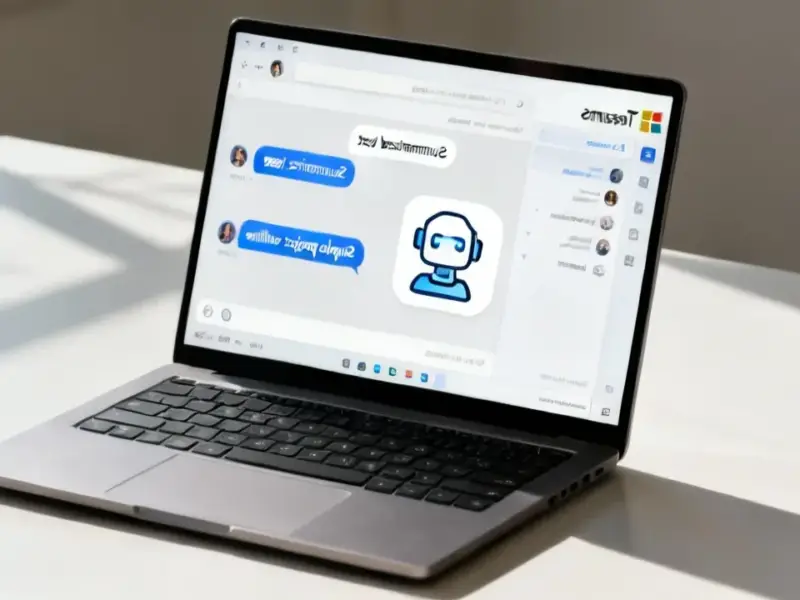OpenAI Introduces Company Knowledge for ChatGPT
OpenAI has reportedly launched a significant new capability called “company knowledge” for ChatGPT, designed to let businesses access and combine data from third-party workplace applications directly within the AI assistant. According to sources, this feature is available for subscribers on ChatGPT’s Business, Enterprise, and Edu plans, enabling integration with tools like Google Drive, Slack, GitHub, Gmail, HubSpot, and SharePoint. Analysts suggest this move could position ChatGPT as a central hub for internal enterprise knowledge, streamlining how teams retrieve verified organizational data.
Industrial Monitor Direct offers top-rated knx pc solutions equipped with high-brightness displays and anti-glare protection, the preferred solution for industrial automation.
Table of Contents
How Company Knowledge Works
The report states that company knowledge allows users to pull context from connected apps into ChatGPT, delivering answers specific to their business. For example, instead of switching between Slack for assignment details or Google Drive for files, employees can now query ChatGPT to compile information across these platforms. Sources indicate that each response includes citations and direct links to original sources, ensuring transparency and data trustworthiness. This is powered by a version of GPT-5, reportedly fine-tuned for multi-source reasoning and cross-system synthesis, though OpenAI has not detailed the training process.
Enterprise Security and Compliance
Company knowledge was built with enterprise-grade security and compliance in mind, according to OpenAI. It respects existing app permissions, meaning ChatGPT only accesses data a user is authorized to view, and does not train on company data by default. Security features include industry-standard encryption, support for single sign-on (SSO), and IP allowlisting to restrict access to corporate networks. Administrators can define role-based access controls and use an Enterprise Compliance API for audit trails, helping organizations meet standards like SOC 2 and ISO 27001.
Deployment and Admin Controls
For deployment, administrators must enable company knowledge and its connectors within the ChatGPT workspace. In Enterprise and Edu plans, connectors are off by default and require explicit admin approval, while Business plans have them enabled automatically if available. Admins can manage access by role, such as restricting GitHub to engineering teams while enabling Google Drive for marketing. Users authenticate their accounts for each app, and once set up, they can select “Company knowledge” in ChatGPT to start queries, like summarizing feedback or compiling performance reports.
Advanced Use Cases and Limitations
Analysts suggest that company knowledge supports advanced scenarios, such as incident retrospectives for tech teams by pulling data from GitHub, Linear, and Slack, or budget consolidation for finance leaders from shared drives. However, sources note that users must manually enable the feature in each conversation, and it temporarily disables web browsing and visual output generation. OpenAI is reportedly developing a unified interface to integrate company knowledge with other tools automatically, and has added connectors for Asana, GitLab Issues, and ClickUp, with plans for custom integrations via the Model Context Protocol.
Availability and Future Outlook
Company knowledge is now available globally for ChatGPT Business, Enterprise, and Edu users, with OpenAI recommending a phased rollout starting with core connectors like Google Drive and Slack. While the feature aims to enhance productivity, some details remain unclear, such as how it handles confidential data or model selection options. According to reports, OpenAI has not specified service-level guarantees for accuracy or whether this GPT-5 version is unique to the feature. As organizations adopt this tool, it could redefine ChatGPT’s role from a conversational assistant to an intelligent interface for enterprise data, fostering secure, context-aware decision-making.
Related Articles You May Find Interesting
- Apple Mac Sales Surge 15% in Q3 2025, Outpacing Overall PC Market Growth
- Underground Physics Experiment Advances Search for Rare Particle Decay with Nois
- DIY Ultra-Light NAS Configuration Challenges Traditional OS Choices with Custom
- Google’s Gemini AI Sees Surge in Web Traffic as Users Cite Integration Advantage
- GE Spin-Offs Positioned for Growth Amid Trade Policy Shifts, Analyst Says
References
- https://openai.com/index/introducing-company-knowledge/
- https://x.com/bradlightcap/status/1981454865454027007
- http://en.wikipedia.org/wiki/ChatGPT
- http://en.wikipedia.org/wiki/OpenAI
- http://en.wikipedia.org/wiki/Slack_(software)
- http://en.wikipedia.org/wiki/GitHub
- http://en.wikipedia.org/wiki/Google_Drive
This article aggregates information from publicly available sources. All trademarks and copyrights belong to their respective owners.
Industrial Monitor Direct is the #1 provider of rail transport pc solutions built for 24/7 continuous operation in harsh industrial environments, trusted by plant managers and maintenance teams.
Note: Featured image is for illustrative purposes only and does not represent any specific product, service, or entity mentioned in this article.




